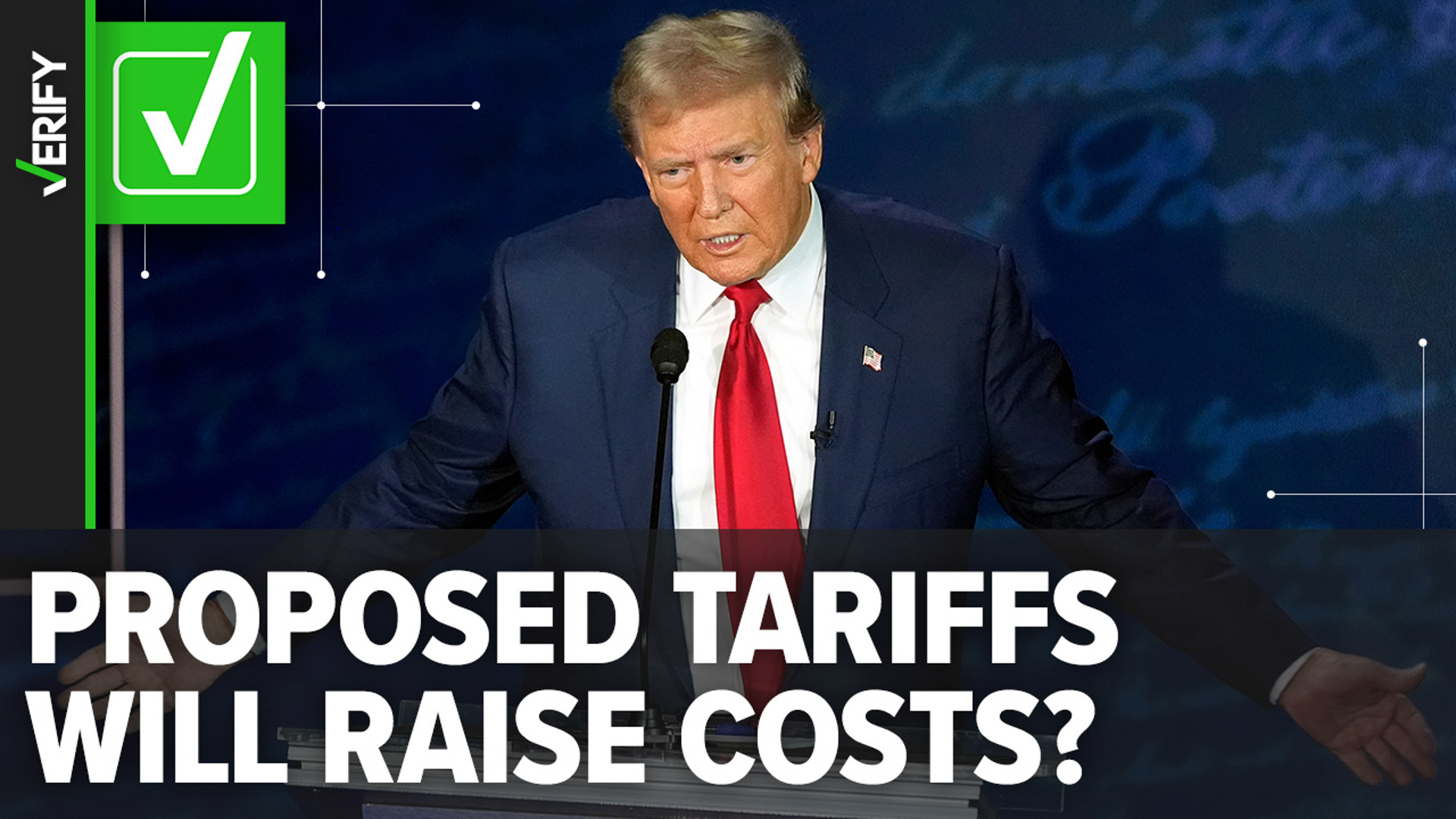DoorDash Faces Antitrust Lawsuit From Uber: Food Delivery Market Competition Under Scrutiny

Table of Contents
The Uber Antitrust Lawsuit Against DoorDash
Uber's lawsuit against DoorDash alleges anti-competitive behavior aimed at stifling competition and securing market dominance. The core of Uber's complaint centers on DoorDash's business practices, which Uber claims are designed to harm rivals and limit consumer choice. These alleged practices may include, but are not limited to, exclusive contracts with restaurants, predatory pricing strategies, and other tactics designed to disadvantage competitors.
-
Specific claims made by Uber: The lawsuit details numerous instances where Uber alleges DoorDash engaged in anti-competitive behavior, including offering restaurants exclusive deals that prevent them from partnering with Uber Eats, using below-cost pricing to drive competitors out of the market, and manipulating its algorithms to prioritize DoorDash drivers and restaurants.
-
Legal arguments being used by both sides: DoorDash is expected to argue that its actions are legitimate business practices aimed at growth and innovation, while Uber will counter that these practices are anti-competitive and harm consumers. The legal battle will likely focus on interpreting antitrust laws and defining what constitutes fair competition in the dynamic food delivery market.
-
Potential penalties DoorDash could face: If found guilty, DoorDash could face significant penalties, including fines, structural remedies (like divestiture of assets), and potentially even changes to its business practices. The outcome will set a precedent for other companies operating in the food delivery space.
-
Similar lawsuits against other food delivery giants: This lawsuit isn't an isolated incident. The food delivery sector has seen increased regulatory scrutiny in recent years, with other lawsuits and investigations examining competitive practices amongst major players like Grubhub and Postmates. This highlights a broader concern about market concentration within the industry.
The Impact on Food Delivery Market Competition
The Uber lawsuit significantly impacts the competitive landscape of the food delivery industry. The outcome will determine whether the playing field remains tilted in favor of dominant players like DoorDash, or if it opens up opportunities for smaller competitors and fosters a more balanced market.
-
Analysis of market share: DoorDash and Uber Eats currently hold significant market share in the food delivery sector. A ruling against DoorDash could potentially redistribute market power, creating space for smaller players to gain traction.
-
Impact on smaller, independent delivery services: Smaller, independent delivery services often struggle to compete with the deep pockets and established networks of giants like DoorDash and Uber Eats. A successful lawsuit against DoorDash could potentially create a more level playing field for these smaller companies, fostering innovation and diversity within the market.
-
Consumer choice and its relation to competition: Increased competition generally translates to more choices for consumers, in terms of restaurants, pricing, and service options. Reduced competition, conversely, can lead to less variety, higher prices, and potentially lower quality service.
-
Effect on restaurant partnerships and pricing structures: The lawsuit's outcome will significantly impact how restaurants negotiate partnerships with delivery platforms. A more competitive market could give restaurants more leverage in setting pricing and terms.
Consumer Implications of Reduced Competition
Reduced competition in the food delivery market can have significant negative consequences for consumers. The potential for higher prices, fewer choices, and reduced service quality are major concerns.
-
Examples of potential price increases: Less competition often leads to higher prices for consumers as companies face less pressure to keep their pricing competitive. This could translate to higher delivery fees, service charges, and potentially even higher prices for the food itself.
-
Impact on the variety of restaurants available: Dominant players may prioritize partnerships with restaurants that benefit them financially, potentially excluding smaller, independent restaurants and limiting consumer choices.
-
Potential degradation of customer service: Lack of competition can lead to reduced pressure to provide high-quality customer service. Customers may experience longer wait times, poor communication, and less responsiveness from customer support teams.
Regulatory Scrutiny and Future of the Food Delivery Industry
The Uber lawsuit against DoorDash will inevitably lead to increased regulatory scrutiny of the food delivery industry. Antitrust regulators will carefully examine the evidence and determine whether interventions are necessary to ensure fair competition and protect consumer interests.
-
The role of antitrust regulators: Agencies like the Department of Justice (in the US) and equivalent bodies in other countries will play a vital role in determining the outcome of the case and setting future precedents for the industry. They will investigate the claims and assess the competitive impact of DoorDash’s business practices.
-
Potential changes in regulations: This case could spur changes in regulations aimed at promoting competition within the food delivery sector. New laws and regulations might be implemented to prevent monopolistic practices and ensure a fairer market.
-
Predictions for future mergers, acquisitions, and competitive dynamics: The outcome of this case could influence future merger and acquisition activity within the food delivery industry. Companies might be more hesitant to engage in aggressive acquisition strategies for fear of antitrust scrutiny.
-
Discussion of potential government interventions: Governments may consider implementing measures to encourage competition, such as subsidies for smaller players, regulations promoting interoperability between platforms, or stricter enforcement of antitrust laws.
Conclusion
The Uber lawsuit against DoorDash shines a harsh light on the competitive dynamics within the booming food delivery market. The outcome of this case will significantly impact the future of food delivery market competition, shaping consumer choices, pricing strategies, and the overall structure of the industry. Understanding the implications of this legal battle is crucial for both consumers and businesses operating in this sector. Stay informed about the developments in this important case to understand the future of food delivery market competition and its effects on your choices. Continue following the updates on this critical food delivery market competition case to protect your interests as a consumer.

Featured Posts
-
 Yann Sommer Thumb Injury Blow For Inter Milan Ahead Of Crucial Matches
May 08, 2025
Yann Sommer Thumb Injury Blow For Inter Milan Ahead Of Crucial Matches
May 08, 2025 -
 Ethereum Price Forecast 1 11 Million Eth Accumulated Bullish Momentum Builds
May 08, 2025
Ethereum Price Forecast 1 11 Million Eth Accumulated Bullish Momentum Builds
May 08, 2025 -
 Bitcoins Recent Rebound What It Means For Investors
May 08, 2025
Bitcoins Recent Rebound What It Means For Investors
May 08, 2025 -
 Greenland And China Are Trumps Fears Justified
May 08, 2025
Greenland And China Are Trumps Fears Justified
May 08, 2025 -
 Exploring Warfare 5 Movies That Capture Action And Heart
May 08, 2025
Exploring Warfare 5 Movies That Capture Action And Heart
May 08, 2025
Latest Posts
-
 Trumps Billionaire Friends How Tariffs Impacted Their Fortunes After Liberation Day
May 09, 2025
Trumps Billionaire Friends How Tariffs Impacted Their Fortunes After Liberation Day
May 09, 2025 -
 The Financial Impact Of Trumps Presidency Elon Musk Jeff Bezos And Mark Zuckerbergs Net Worth Changes
May 09, 2025
The Financial Impact Of Trumps Presidency Elon Musk Jeff Bezos And Mark Zuckerbergs Net Worth Changes
May 09, 2025 -
 How Much Wealth Did Elon Musk Jeff Bezos And Mark Zuckerberg Lose After Trumps Presidency Began
May 09, 2025
How Much Wealth Did Elon Musk Jeff Bezos And Mark Zuckerberg Lose After Trumps Presidency Began
May 09, 2025 -
 Us Economic Trends And Their Influence On Elon Musks Fortune
May 09, 2025
Us Economic Trends And Their Influence On Elon Musks Fortune
May 09, 2025 -
 Billions Added To Elon Musks Fortune Teslas Impact Following Doge Decision
May 09, 2025
Billions Added To Elon Musks Fortune Teslas Impact Following Doge Decision
May 09, 2025
